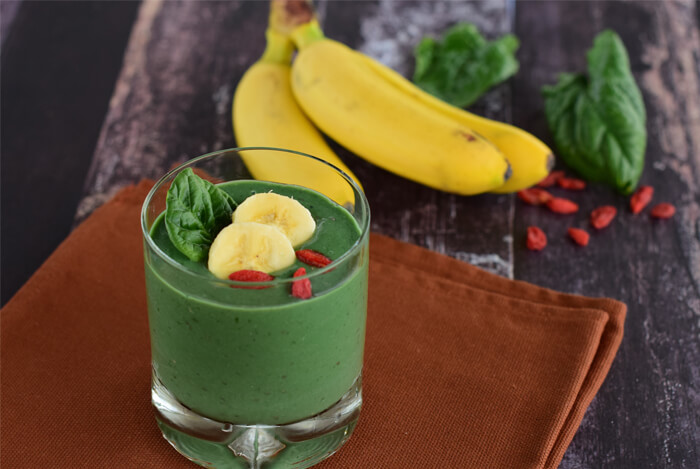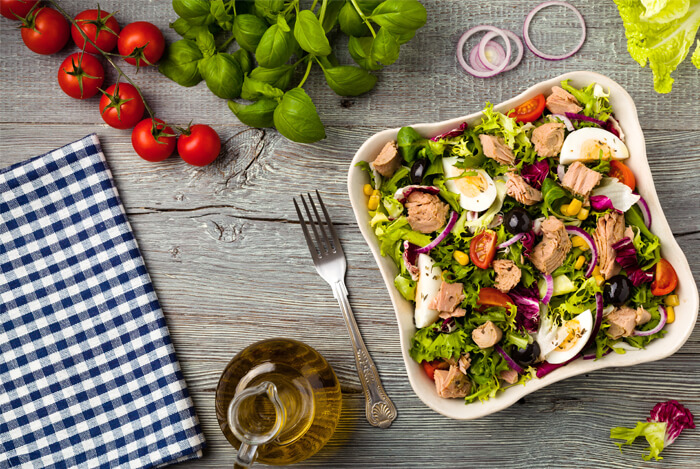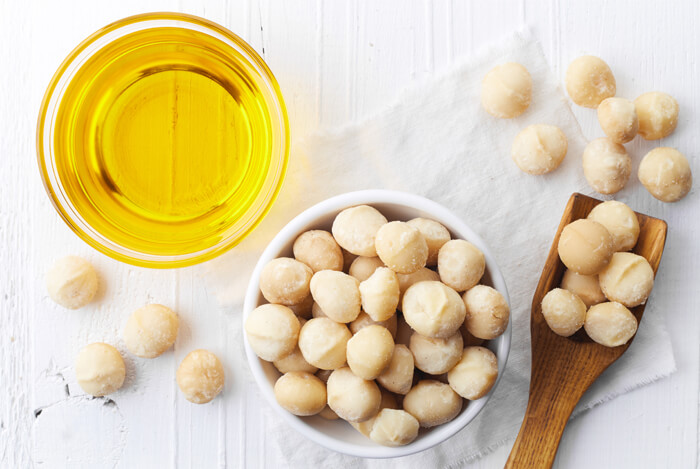Eating for optimal vision is as simple as eating for better heart health; start with whole foods and from there add in specific, nutrient-dense foods shown to improve vision health.
Consider adding these nutrients and foods to improve vision.
- 4 Nutrients That May Help Improve Vision
Table of Contents
+4 Nutrients That May Help Improve Vision
1. Vitamin A – Beta-Carotene

Vitamin A is found in a variety of forms through dietary choices, so there’s no need to opt for a fancy supplement. The healthiest sources of Vitamin A come from foods rich in beta-carotene.
Top Food Sources:
- Leafy Greens
- Carrots
- Winter Squash
- Cantaloupe
- Sweet potatoes
- Spirulina
- Wheatgrass and green powders
- Watercress
- Apricots
- Carrot juice
- Red Bell Peppers
Action Tip for Optimal Results:
Eat your Vitamin A-rich foods with a healthy source of fat like almonds, avocado, olives, pumpkin seeds, or another source of healthy fat you enjoy.
Because Vitamin A is a fat-soluble vitamin meaning you can’t properly absorb the vitamin without some fats in your diet. You don’t need to eat a lot, even a teaspoon will make all the difference in how your body absorbs and uses these foods above to assimilate the beta-carotene into a usable form of Vitamin A that will improve your vision.
2. Vitamin C: The All-in-One Antioxidant

Vitamin C is an antioxidant found in all fruits, vegetables, and leafy greens.
Top Food Sources:
- Berries (all)
- Apples
- Sweet potatoes
- Kale
- Romaine
- Fennel
- Spinach
- Pineapple
- Tomatoes
- Kiwi
- Mango
- Oranges
- Broccoli
- Brussels sprouts
- Red Bell Peppers
- Asparagus
- Bananas
- Peaches
- Grapefruit
- Some dried fruits (unsweetened mulberries, goji berries, figs)
Action Tip for Optimal Results:
Vitamin C is a water-soluble vitamin so you don’t need to worry about eating it with any healthy fats but you can if you choose to.
3. Omega-3 Fatty Acids: The Magical Fat for Optimal Health

Healthy fats aren’t just important for your heart and brain; you also need them for optimal vision too. Omega-3 rich foods such as salmon, halibut, mackerel, walnuts, flax, hemp, chia, and the fruit acai berry are all fantastic for your vision health. Omega-3 fatty acids fight inflammation in the blood vessels that are found in all parts of the body, including your eyes.
Top Food Sources:
- Salmon
- Halibut
- Mackerel
- Tuna
- Acai berry
- Omega-3 fortified eggs
- Fish oil
- Walnuts
- Flax
- Chia
- Hemp
- Pumpkin Seeds
Action Tip for Optimal Results:
Omega-3 fats are easily absorbed by the body, so you can pair them with vegetables, greens, and fruits to make limitless healthy meals for optimal vision.
4. Vitamin E: The Beauty and Brain Health Antioxidant

Vitamin E is a fat-soluble vitamin that you need for a healthy brain, healthy joints, clear skin, and yes, optimal vision too.
Vitamin E rich foods are very easy to find from whole foods.
Top Food Sources:
- Walnuts
- Plain peanut butter
- Almonds
- Avocado
- Olives and olive oil
- Macadamia nuts
- Spinach
- Sunflower seeds
- Wheat germ
- Tocotrienols (raw rice bran solubles)
- Trout
Action Tip for Optimal Results:
Since Vitamin E is a fat-soluble vitamin and found in many fatty foods, it’s normally easy for your body to absorb. However, for foods such as spinach that don’t contain a lot of fat, you’ll need to be sure you pair it with a little healthy fat for optimal absorption.










